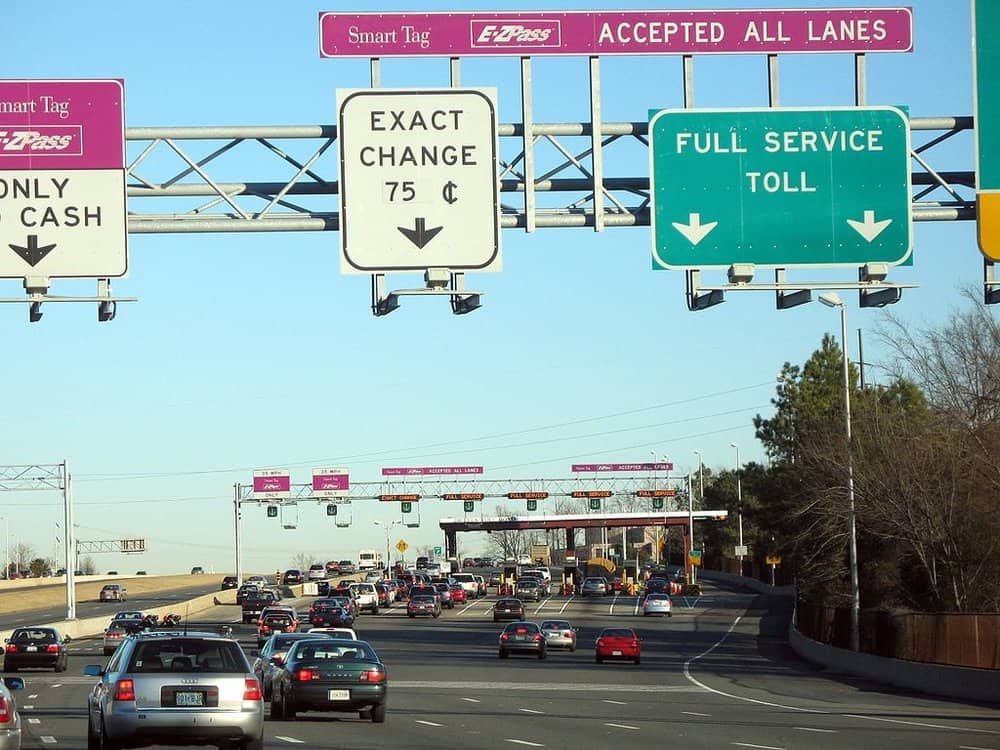
PA Turnpike Commission, the agency that operates the toll highway in the state of Pennsylvania is officially fed up with the scores of toll violators and the mounting debt that they have accrued over the years, as it plans to slap felony charges against the evaders.
In October 2016, PA turnpike published its list of two dozen companies that owe more than $20,000 each in unpaid tickets to the agency which alone accounts for over $1.5 million. This includes one company from New Jersey, which has racked up an astonishing $678,000 in unpaid bills on more than 7,600 trips on the Pennsylvania highways.
Along with these top offenders, a lot of other companies have repeatedly been violating the toll gates, consciously driving their vehicles past the turnpike’s cashless E-ZPass lanes without a transponder in place for payment. In the absence of a transponder, the overhead cameras take a shot of the vehicle’s license plate, and sends the toll bill to the address where it is registered. And apparently, not a lot of companies seem to think twice about settling tickets.
This has led to a massive surge in unpaid bills, which over the past three years has stacked up to nearly $18 million in debt. The agency believes it can no longer turn a blind eye to the proceedings and is working with local prosecutors to press criminal charges against every motorist who owes more than $2,000 to PA turnpike.
Initially though, the agency was not inclined to pursue criminal charges, but looked to revoke vehicle registration and licenses of offenders, by working with the state authorities. Over the summer of 2016, PA turnpike had proposed amnesty to drivers from penalties and registration revocation charges, if they were willing to settle bills on time. This move was a moderate success, as around 2,100 drivers offered to pay their bills, settling over $1.4 million in debts.
But this still left the turnpike with more than $17 million in unpaid bills. Though in such situations, cases could be made against the violators, it usually is settled in the civil courts. But Ray Morrow, the chief compliance officer of PA Turnpike spoke in favor of pursuing a criminal case, since it falls under theft of services – which now is the overall consensus across the management.
“When people find out we’re actually going after people criminally, it’s going to make a huge impact,” said Morrow. He believes this could bring down the number of daily offenders of the turnpike system. And this is not an exclusive problem with the PA turnpike, as states all across the country are at a loss on how to handle this situation which has aggravated over the years due to the availability of electronic pay lanes.
As per a survey on 36 tolling agencies in the U.S. which account for 80% of the industry’s toll revenue, the cash toll collection fell from 29% in 2010 to 18% in 2015. This was because at the same period the industry saw a 76% growth in revenues through cashless toll transactions. And the number is expected to scale up further in the future, as electronic transponders are becoming the norm on America’s highways. The authorities contend that going cashless helps drivers as it does not require them to stop or slow down at toll kiosks, but on the flip side, poses a problem of toll collection from serial offenders.
Different turnpike agencies have handled this in more ways than one – publicly naming offenders, stopping violators from renewing license plates, and even alerting the state police about violators driving on the road with suspended licenses due to excessive toll debts. But PA turnpike’s aggressive move towards incriminating serial offenders is a first for a turnpike in the U.S., and if the statistics across different turnpike agencies are to be believed, a lot of them would follow suit.
As callous offenders keep mounting bills in their wake, agencies have realized that sans a forced mechanism in place, toll violations can never be curbed. So the next time a driver thinks of repeatedly violating a toll in Pennsylvania, he might be looking at severe repercussions and even some jail time.
Stay up-to-date with the latest commentary and insights on FreightTech and the impact to the markets by subscribing.










